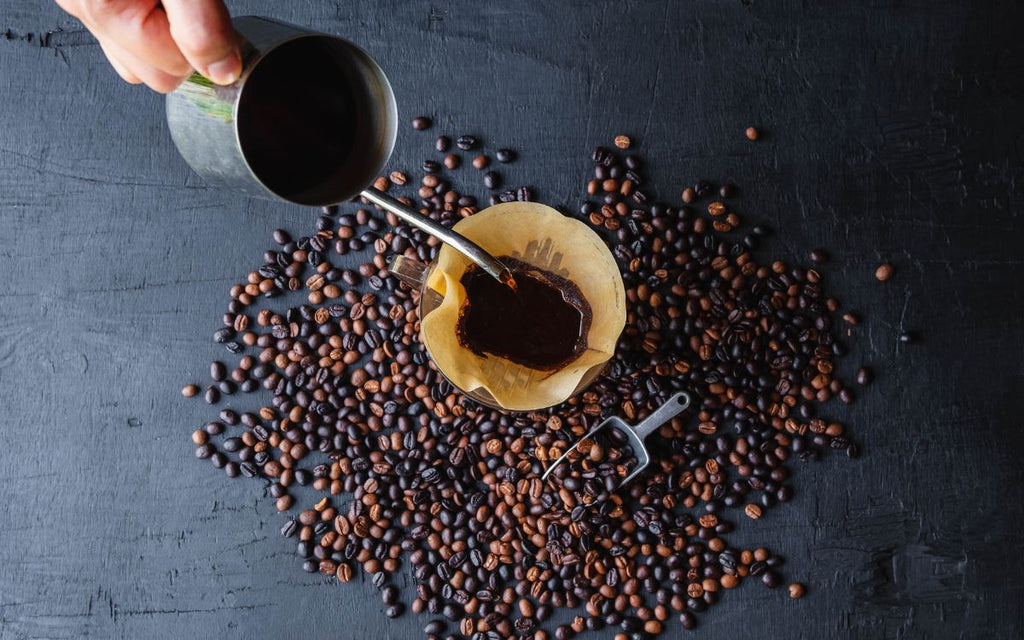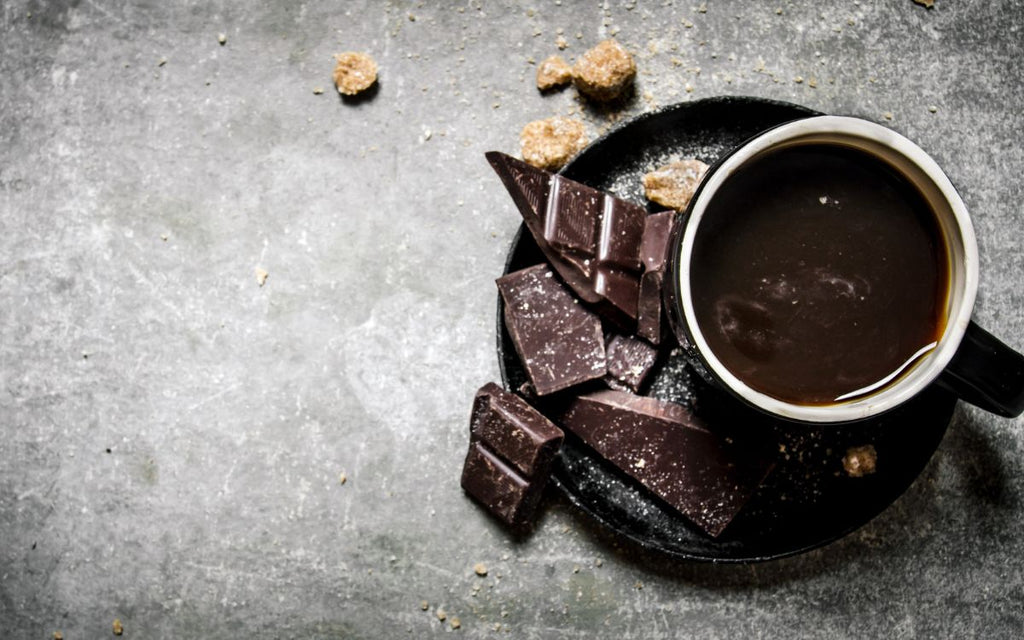
Mar 15 , 2024
Introduction
That dreaded first sip – a bitter jolt instead of the smooth, comforting pick-me-up you craved. Fear not, coffee comrades! This bitterness doesn't have to be your fate. Let's unveil the science behind a bad brew and explore ways to rescue your cup or, better yet, prevent it from happening in the first place.
The culprit? Over-extraction. Imagine steeping tea for too long – the delicate flavours vanish, replaced by harshness. The same happens with coffee when too much is extracted from the grounds, including unwanted bitter compounds.
The Culprit: Over-Extraction

The primary culprit behind bitter coffee is over-extraction. This occurs when the hot water extracts too many components from the coffee grounds, including unwanted bitter compounds. Think of it like steeping tea for too long – the delicious flavours become overshadowed by the harshness.
Common Causes of Over-Extraction
Grind size
Using coffee grounds that are too fine creates a larger surface area for the water to interact with, leading to over-extraction and bitterness. Imagine trying to squeeze the juice out of a whole orange compared to a pulpy mess – the finer the grind, the more you extract, desired flavours and all.
Brewing Time
Leaving your coffee to brew for too long allows for excessive extraction. This applies to all brewing methods, from French presses to pour-overs. Think of it like simmering a soup for hours – eventually, the flavours become concentrated and unpleasantly strong.
Water Temperature
Water that is too hot can accelerate extraction, leading to bitterness. Aim for water between 195°F (90°C) and 205°F (96°C) for optimal extraction.
Coffee-To-Water Ratio
Using too much coffee for the amount of water also contributes to over-extraction. This creates a stronger brew, often resulting in bitterness.
Fixing Your Bitter Brew

Now that we know the enemy let's conquer it! Here are some ways to fix your bitter coffee:
- Adjust the grind size: If your coffee is consistently bitter, try a coarser grind. This reduces the surface area exposed to water, resulting in a slower extraction and a smoother cup.
- Shorten the brewing time: Experiment with decreasing your brewing time by a few seconds or minutes. This will prevent over-extraction and bitterness.
- Cool down the water: If you suspect your water is too hot, let it cool slightly before pouring it over the grounds. Aim for the sweet spot between 195°F and 205°F.
- Adjust the coffee-to-water ratio: Start with a standard ratio of 1-2 tablespoons of coffee per 6 ounces of water. Experiment to find your personal preference, but remember, more coffee doesn't always equal a stronger flavour.
Preventing Bitter Coffee in the First Place
Prevention is always better than cure, and the same applies to bitter coffee. Here are some tips to ensure a consistently delicious cup:
- Invest in fresh, high-quality beans: Freshly roasted beans naturally have a brighter, more complex flavour profile and are less likely to be bitter.
- Store your beans properly: Store your coffee beans in an airtight container in a cool, dark place to preserve their freshness and prevent them from going stale, which can lead to bitterness.
- Use filtered water: Impurities in tap water can affect the taste of your coffee. Using filtered water ensures a cleaner and more consistent flavour.
- Clean your brewing equipment: Regularly clean your coffee maker or French press to remove any coffee residue that can affect the taste and potentially contribute to bitterness.
By understanding the science behind bitter coffee and applying these tips, you can transform your coffee experience from bitter disappointment to a consistently delicious and enjoyable journey. Remember, experimentation is key! Don't be afraid to adjust brewing parameters based on your taste and brewing method. So, grab your favourite mug, embrace the knowledge, and brew yourself a perfect cup of coffee, free from bitterness!
Levista Coffee
Venture beyond the ordinary with Levista Coffee. Hailing from the lush hills of Coorg, India, they meticulously select estate-grown beans, roasting them to perfection to reveal distinct and unique flavours.
Dive into the world of traditional South Indian filter coffee or experience the distinctive taste of monsoon Malabar. For those seeking something different, Levista offers an array of flavoured options, including aromatic cardamom and rich hazelnut.
Levista's dedication extends beyond taste. Their commitment to sustainable sourcing and responsible practices ensures that each cup is not only delicious but also ethically crafted. Step away from the usual and embark on a flavorful journey with Levista.
Banishing the Bitter Brew: A Delicious Conclusion
So, there you have it! By understanding the science behind bitter coffee and applying these simple tips, you can navigate the world of brewing with confidence. Remember, experimentation is key – adjust and refine your approach to find the perfect cup that suits your taste. Embrace fresh ingredients, meticulous practices, and a touch of experimentation, and your daily coffee ritual will transform from a battle against bitterness into a consistently delightful and delicious experience. Now go forth, fellow coffee lovers, and brew blissfully!
FAQs
Why is my coffee bitter?
Your coffee might be bitter due to over-extraction, where the coffee grounds are in contact with water for too long, or the grind size is too fine. Using water that's too hot can also cause bitterness. Additionally, low-quality beans or improper storage can contribute. Adjusting brewing time, water temperature, and bean quality can help reduce bitterness.
Why does my coffee taste bitter?
Coffee can taste bitter due to over-extraction, where the grounds are in contact with water for too long. Using water that's too hot can also cause bitterness. Low-quality beans or improper storage can contribute.
How can I fix bitter coffee?
To fix bitter coffee, try adjusting the brewing time, using a coarser grind, or reducing the water temperature. Using higher-quality beans and ensuring proper storage can also help reduce bitterness.
Does the brewing method affect bitterness?
Yes, the brewing method can affect bitterness. Methods like French press and espresso tend to extract more flavour compounds, including bitterness, compared to drip coffee makers.
Can water quality impact coffee bitterness?
Yes, water quality can impact bitterness. Using filtered water can help reduce impurities that contribute to bitterness in coffee.
Does the roast level affect bitterness?
Yes, the roast level can affect bitterness. Darker roasts tend to have a more bitter flavour compared to lighter roasts, which are generally sweeter and more acidic.
How can I prevent bitterness in my coffee?
To prevent bitterness, ensure you're using the right grind size, brewing at the correct temperature, and using high-quality, freshly roasted beans. Adjusting these factors can lead to a smoother, less bitter cup of coffee.

